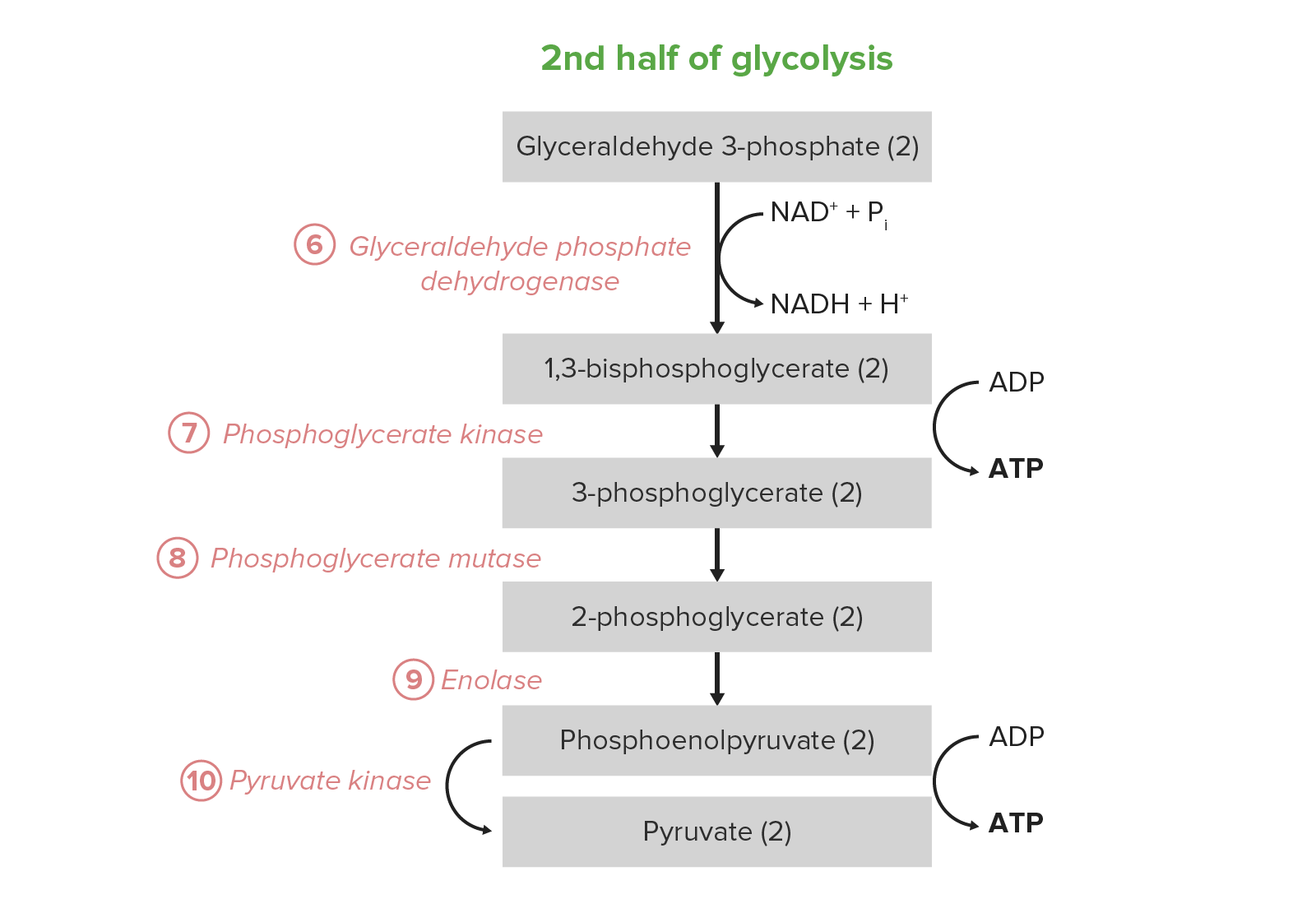Playlist
Show Playlist
Hide Playlist
Introduction – Glycolysis and Pyruvate Metabolism
-
04 Advanced CarbohydrateMetabolism.pdf
-
Reference List Biochemistry.pdf
-
Download Lecture Overview
00:01 Carbohydrates are essential energy sources for almost every cell on the face of the earth. So it's essential to understand then the biochemistry/metabolism of these important compounds. 00:11 This lecture will focus on probably the most important carbohydrate and that's glucose. 00:17 Glucose is broken down in a pathway called glycolysis which will be subject of the first part of the talk and then I will finish with the end product of glycolysis which is pyruvate and how it's metabolized further and how that impacts fermentation. 00:32 Now in glycolysis we have the breakdown of glucose then glycolysis literally means the breakdown of glucose. 00:38 Glyco referring to the glucose part and lysis referring to the breakdown. 00:42 Glycolysis is a primary energy source for cells but it's not within the pathway itself overly energetic, and as we will see what glycolysis is important for is providing its end products for further oxidation. 00:57 Glycolysis is what we call a central metabolic pathway. 01:00 Now central metabolic pathway means that it feeds into so many other pathways and if we pull this pathway out of a cell, it would mean the cell would really have to rearrange everything that it does. 01:11 The reactions of glycolysis occur in the cytoplasm of eukaryotic cells. 01:17 Glycolysis occurs in what we call two phases. 01:20 Our first phase in which ATP energy must actually be put into molecules to start the process. The ATP would be recovered later in the second part of glycolysis where additional ATPs are made, reduced electron carriers are made and two pyruvates are also made. 01:38 Pyruvates is our connecting point for other pathways and the oxidation of pyruvates generates a tremendous amount of energy. 01:48 Now glucose's structure is seen on the right here. 01:52 In the body, it's stored, at least in animals, it's stored in the form of glycogen. So the breakdown of glycogen releases essentially glucose for cells to use. 02:03 In plants, amylose and amylopectin are used as the storage form. 02:07 But the end product in each case of breakdown is the same, we get glucose that can be used for energy. 02:13 The advantage of having glucose as a primary energy source for cells particularly for a multicellular organism is that it is very readily released from storage and it's also very easily to travel in the blood. 02:29 Traveling in the blood is important because fat actually stores more energy per carbon than glucose does. 02:36 But in a liquid or in a aqueous organisms such as we are, that fat has to be packaged up in order to travel and that takes time. 02:46 Now another advantage of glucose is that it can be made from very simple precursors as we will see in another one of these lectures in a pathway known as gluconeogenesis.
About the Lecture
The lecture Introduction – Glycolysis and Pyruvate Metabolism by Kevin Ahern, PhD is from the course Carbohydrate Metabolism.
Included Quiz Questions
Which of the following regarding glycolysis is true?
- It produces 2 ATP, 2 pyruvates, and 2 NADH.
- All the energy needed to perform all cell functions are produced.
- Glucose is converted to one molecule of pyruvate.
- ADP is required to start the process.
- All the reactions take place in the mitochodria.
Which of the statements below about glucose is NOT true?
- It is catabolized in gluconeogenesis.
- It travels easily in the blood.
- It is stored in polymers in the body.
- It is made from simple precursors.
- It makes 2 pyruvates in glycolysis.
Customer reviews
5,0 of 5 stars
| 5 Stars |
|
5 |
| 4 Stars |
|
0 |
| 3 Stars |
|
0 |
| 2 Stars |
|
0 |
| 1 Star |
|
0 |




